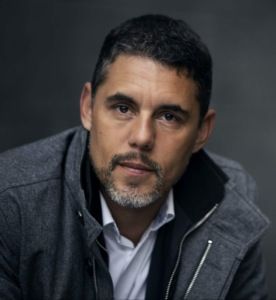Opinion
Guest Opinion: Save the Danish children in IS camps
David Zepernick
This article is more than 4 years old.

Don’t desert the children! (photo: Pixabay)
With their refusal to repatriate around 30 Danish IS children from the Kurdish-controlled refugee/prison camps al-Roj and al-Hol in Syria, the justice minister, Nick Hækkerup, and his colleague, the foreign minister, Jeppe Kofod, are not only breaching the Convention on the Rights of the Child, which Denmark has signed, but they are also gambling with national security.
Blind to rights
The official explanation for not repatriating the children is that their parents are a security risk.
Furthermore, it is argued that since the parents have turned their back on Denmark and joined IS, the children have lost any right for protection from Denmark.
The fact that the children have rights on their own is ignored. The children did not turn their backs on Denmark, but now Denmark is turning its back on these Danish children.
Strategy based on hope
The Danish Security and Intelligence Service (PET) has however concluded that the children are no security risk. As regards their parents, the security risk, of course, depends on how our legal institutions handle the individual cases. But in any case, Danish institutions and Danish society would be in the driving seat. This is a central point.
If we go with the the Socialdemokratiet government´s so-called strategy and leave the children (and the parents) in the camps – as long as the Kurdish militia guarding camps agrees to do so and do not prioritise their already overstretched resources differently – the future will be more difficult to predict.
This is a strategy based on nothing more than hope. It assumes that these former IS warriors, their wifes and traumatised children will never ever be released and, if so, never ever return to Europe or Denmark.
It is essentially based on something which Denmark has next to no influence on. The assumption that none of these children would ever be able to return to Europe appears to be an ill-founded assumption in an increasingly globalised world.
But is this a wise national security strategy?
Wrong on every level
Experts agree that the camps are breeding grounds for radicalisation, which is often analysed on a societal level, a group level and an individual level.
On a societal level, the consequence of the Danish strategy will be that these children will grow up in a camp environment and in a camp culture in strong opposition to the outside world.
On a group level, their upbringing will be left to primary caregivers defining themselves in aggressive and violent opposition to not only the regimes and the countries they are currently located in, but also the West and Western values in general.
On an individual level, and on top of all that, we are now also giving these children strong psychological motivation.
Grow up with a grudge
It would be no surprise if some of these children grew up with the feeling that Denmark, and easily identifiable individual government ministers, had deliberately forsaken them.
In my view, repatriation is not only the right decision from a humanitarian point of view, but also from a national security perspective it is the most sensible thing to do in the long run.

About
David Zepernick
Since his election in 2017, David has represented Radikale on the Frederiksberg Municipal Council. He is also the chair of the Safe and Alive Foundation.










































